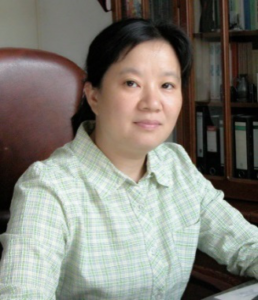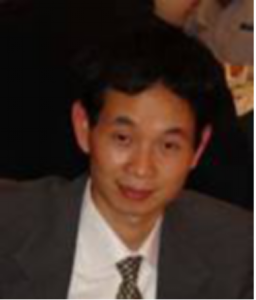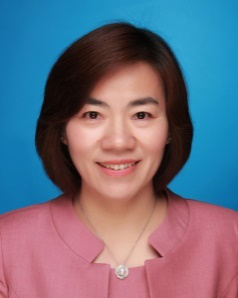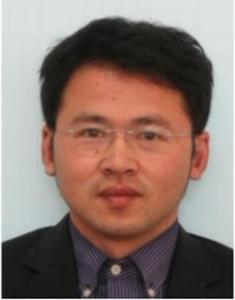Advanced Theory and Technologies in Intelligent Automation
Thursday, July 19, 2018
The Residence 1, First Floor
Session Chair: Yongchun Fang, Nankai University
14:10-14:50
Unmanned Vehicles: from Automated Driving to Autonomous Driving
Jianru Xue
Professor
Institute of Artificial Intelligence and Robotics
Xi’an Jiaotong University, China
Abstract: Unmanned vehicles are well known disruptive technologies, and gain more and more attention ranging from academia, enterprise, to government. However, autonomous driving and automated driving are two different stages of the unmanned vehicle technologies, and there is still a huge gap between them. The aim of this talk is to provide a comprehensive state of the art on the basic concepts, methodologies, and technologies of autonomous driving. Firstly, the traditional automated driving technologies will be described. Secondly, challenging problems in the field of autonomous driving are presented as well as the latest progress we have made. Finally, demonstrations of our unmanned vehicles autonomous driving in real urban scene will be presented, along with our future work.
Biography: Jianru Xue, Phd, Professor, Changjiang Scholar. He got his BS degree from Xian University of Technology in 1994, and both MS and PhD degrees from Xi’an Jiaotong University in 1999 and 2003, respectively. He joined the Institute of Artificial Intelligence and Robotics at Xi’an Jiaotong University, Xi’an, China, since 1996, where he currently is a full professor. He had worked in FujiXerox, Tokyo, Japan, from 2002 to 2003, and visited University of California, Los Angeles, from 2008 to 2009. His research interests include computer vision and pattern recognition, visual scene understanding and motion control for intelligent vehicles, and machine learning. He and his team are winner of IEEE ITSS Institute Lead Award in 2014. He and his students won the best application paper award in Asian Conference on Computer Vision 2012. He is co-author of the book Statistical Learning and Pattern Analysis approaches to Image and Video Processing,published by Springer-verlag in 2009. He has published 100+ papers in top cited journals and conferences including IEEE TPAMI, IEEE TIP, IEEE TSMCB, ICCV, ECCV, ACM MM, ICPR, etc. He had severed as organization chair or co-chair of several international conferences including VALSE2012, VLPR2011, VLPR2010, ACCV2010, VSMM2006, and so on. He also served on the technical program committee of peer-reviewed conferences ICME, ACCV, ICPR, IVS, etc.
14:50-15:30
Model Predictive Control: From Theory to Vehicle Applications
Hong Chen
Professor
State Key Laboratory of Automotive Simulation and Control
Jilin University, China
Abstract: Model predictive control (MPC) is used in a variety of industrial application over the last three decades. The reasons for its success are, on the one hand, its capability to directly incorporate constraints, and on the other hand, the intuitive way to address control problems. The main purpose of this talk is to provide the state of the art of model predictive control, and its application to vehicle control. In the first part, the basic idea of MPC, MPC with guaranteed nominal stability, inherent robustness of MPC, and an efficient robust MPC scheme will be introduced, respectively. Then, fast MPC for real-time automobile control using low-cost hardware will be considered, providing two technical routes of reducing computational effort. The third part focuses on some aspects of applying MPC to automotive systems through some selected examples including MPC-based ecological-driving and energy management strategies.
Biography: Chen Hong has been a professor in Jilin University, Changchun, China since 1999, where she currently serves as a Tang Aoqing professor and as the director of the State Key Laboratory of Automotive Simulation and Control. She received the B.S. and M.S. degrees in Process Control from Zhejiang University, Zhejiang, China, in 1983 and 1986, respectively, and the Ph.D. degree in System Dynamics and Control Engineering from the University of Stuttgart, Stuttgart, Germany, in 1997. Her current research interests include model predictive control, nonlinear control and applications in mechatronic systems focusing on automotive systems.
15:30-16:10
Some Challenges in Machine Vision Applications
Shengyong Chen
Professor
Tianjin University of Technology, China
Abstract: This talk presents the recent developments and challenges of machine vision, including object localization, segmentation, recognition, reconstruction, representation, feature extraction, target tracking, pattern analysis, etc. The questions in the presentation are summarized to include: Where is the object? Who is who? What is meaningful? What represents the object? What happen? All problems have been studied for tens of years and all have significant progress. All, however, are still open to seek better solutions. Variety of examples and videos are shown in the talk.
Biography: Shengyong Chen received the Ph.D. degree in computer vision from City University of Hong Kong, Hong Kong, in 2003. He worked as a guest research at University of Hamburg, Germany, where he received a fellowship from the Alexander von Humboldt Foundation in 2006. He was a visiting professor at Imperial College London, from 2008 to 2009. He is currently a Professor in Tianjin University of Technology and Zhejiang University of Technology. Dr. Chen is an IET Fellow and an IEEE senior member. His research interests include computer vision, image processing, and robotics. He received the National Outstanding Youth Foundation Award of NSFC. He has published over 100 scientific papers in international journals, five of which received Best Paper Awards from IEEE and IET societies.
16:20-17:00
Intelligent Perception and Decision-making of USVs, Based on the Memory Forming and Cognition Process of Brain
Shaorong Xie
Professor
Shanghai University, China
Abstract: The intelligent perception and automatic control problem of USVs in the complex dynamic marine environment consists of object recognition, situation awareness and autonomous decision, and it is characterized by two attributes: 1) incomplete information, 2) uncertainty information. To address the above problem, a general and innovative architecture based on the memory forming and cognition process of brain is recommended. In the architecture, the functions of memory modules and their relationships in brain memory cognitive process, and the selective attention and cross-perception mechanisms have inspired the development of intelligent perception and decision-making techniques. Based on this architecture, we also have proposed the framework of situation awareness, task allocation and cooperative control. This research is expected to provide important support for the USV applications in the area of submarine survey, marine monitoring, etc.
Biography: Prof. Shaorong Xie is Associate Dean of School of Computer Engineering and Science, Director of Engineering Research Center of Marine Intelligent Unmanned System Equipment of the Ministry of Education, and Associate Dean of Unmanned Surface Vehicle Engineering Research Institute at Shanghai University. She received her Ph.D. from the Institute of Intelligent Machines, Tianjin University and the Institute of Robotics and Information Automation, Nankai University in 2001. She was a postdoctoral fellow at the University of Toronto in Canada, a visiting professor at Tokyo Institute of Technology in Japan, and a visiting professor at New Mexico State University in the United States. Her main research areas are intelligent and autonomous robots, including unmanned surface vehicle technology, cooperative control technology of multi-autonomous robots, and intelligent systems. She was selected as a leading talent in Shanghai, Shanghai outstanding academic leader, and other talent plans. Among the awards Prof. Xie has received are: the first national team of Huang Danni-style teachers, the National Able Women Achievement Medal, Best Professor Award in Shanghai, Distinguished Young Scholar by the National Science Foundation of China, Young Scientist Award from the Chinese Society of Automation, Shanghai Science and Technology Elite Nomination, the second prize of national technology invention, the first prize of Shanghai science and technology advances, and the first prize of Shanghai technological invention.
17:00-17:40
Intelligent Construction
Bin He
Professor
Group of Intelligent Detection and Computing Perception
College of Electronics and Information Engineering
Tongji University, China
Abstract: The automation technologies have promoted the improvement of productivity in various industrial fields. However, in the field of civil engineering, the automatic detection technology and robot technology are still lagging behind other fields. Aiming at the automation technologies and methods in the manufacturing field, here will talk about the automation technologies, robotics and information technologies that will change the civil engineering in the future, and propose other related technologies for future intelligent constructions through some construction examples.
Biography: Bin He is a Professor at College of Electronics and Information Engineering of Tongji University, Shanghai, China. He has been with the Group of Intelligent Detection and Computing Perception since 2003. He received the B.S. degree in engineering machinery from Jilin University, Changchun, China, in 1996, and the Ph.D. degree in mechanical and electronic control engineering from Zhejiang University, Hangzhou, China, in 2001. Between 2001 and 2003, he held postdoctoral research appointments with The State Key Lab of Fluid Power Transmission and Control, Zhejiang University. He has published 100 papers and authorized over 20 patents of innovation. His current research interests include intelligent robot and intelligent construction, and etc. He is an Associate Editor of Neurocomputing (2012-).
